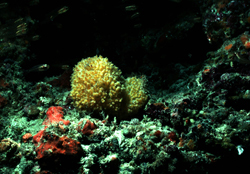Sea sponges aren't just for the bathroom anymore
Secondary metabolites include a range of chemical substances produced by organisms that are not used in reproduction or other primary functions. Many of these secondary metabolites are utilised in medicines, cosmetics and even as health food supplements. Several promising secondary metabolites have been found in sponges, yet limited supplies have hampered commercial efforts. The EU-funded 'Sustainable production, physiology, oceanography, natural products, genetics and economics of sponges' (Sponges) project took up the challenge of expanding on these efforts. The Sponges team got up close and personal with sponges in their natural environment and in the process learned about their diets and ideal living conditions. Knowledge gained was applied to improve land-based sponge farming. A genetic investigation of how secondary metabolites are formed also contributed to improving productivity. Several products, including a potentially lucrative skin cream, were also developed during the project. The scientists involved in Sponges published numerous papers in peer-reviewed journals documenting the advances in marine biotechnology that were made. Project outcomes thus opened the door to sustainable production of sea sponges and their secondary metabolites.







